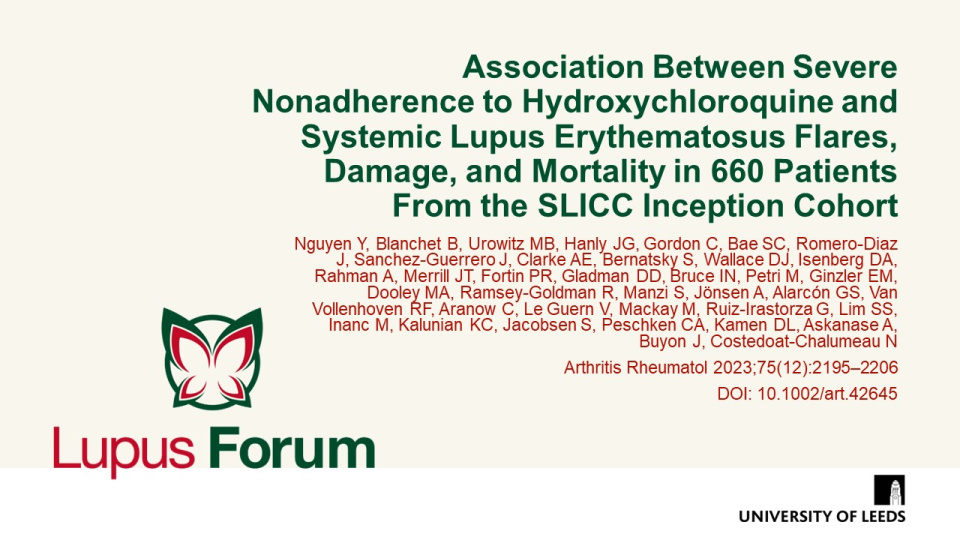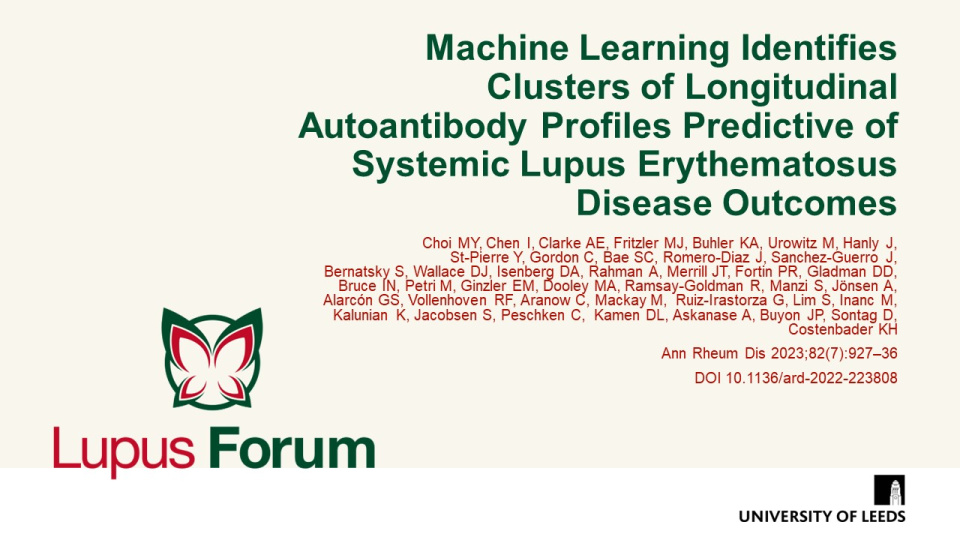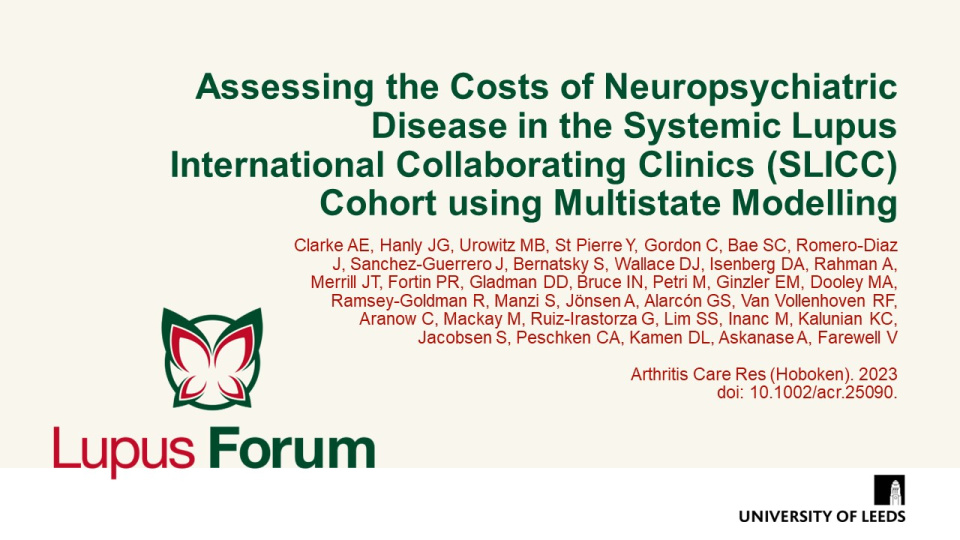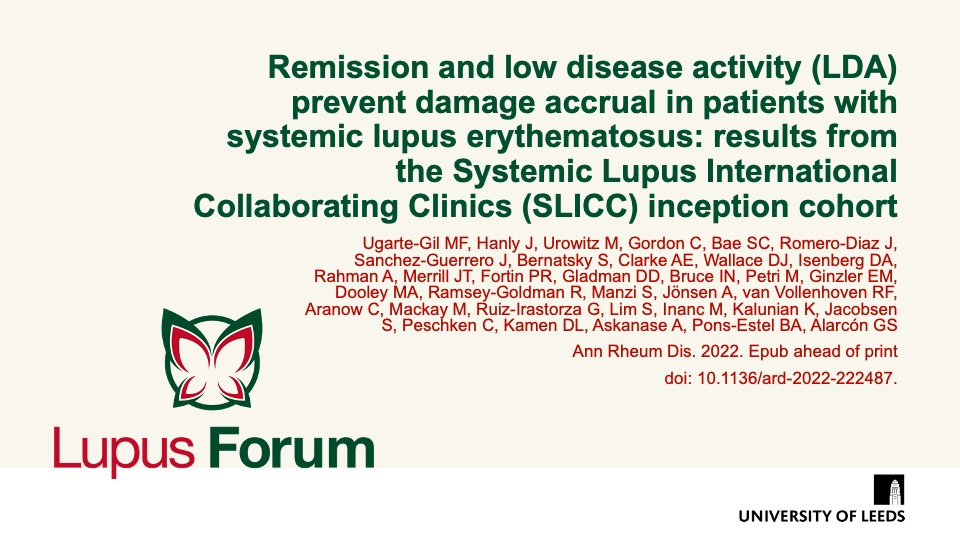Publications
Find coverage of the latest original articles on Lupus, focusing on those with data on therapeutic interventions and those that have clinical impact.
Association Between Severe Nonadherence to Hydroxychloroquine and Systemic Lupus Erythematosus Flares, Damage, and Mortality in 660 Patients From the SLICC Inception Cohort
Arthritis Rheumatol. 2023; 75(12):2195–2206 DOI: 10.1002/art.42645
n this study, severe nonadherence to hydroxychloroquine (HCQ) was independently associated with the risk of SLE flare in the following year, early damage and 5-year mortality.
Keywords:
Machine Learning Identifies Clusters of Longitudinal Autoantibody Profiles Predictive of Systemic Lupus Erythematosus Disease Outcomes
Ann Rheum Dis 2023;82(7):927–36 doi 10.1136/ard-2022-223808
Choi, et al. used machine clustering techniques to divide SLE patients into four distinct clusters. This could potentially be used to predict future clinical outcomes, and as benchmarks to study other SLE-related outcomes.
Keywords:
Assessing the Costs of Neuropsychiatric Disease in the Systemic Lupus International Collaborating Clinics (SLICC) Cohort using Multistate Modelling
Arthritis Care Res (Hoboken). 2023 doi: 10.1002/acr.25090.
First study to assess the long-term economic burden of neurologic and/or psychiatric (NP) lupus in an international, multi-ethnic inception cohort, concludes that patients with new/ongoing SLE or non-SLE NP events incurred higher direct and indirect costs.
Remission and low disease activity (LDA) prevent damage accrual in patients with systemic lupus erythematosus: results from the Systemic Lupus International Collaborating Clinics (SLICC) inception cohort
Ann Rheum Dis. 2022. Epub ahead of print doi: 10.1136/ard-2022-222487.
Large multinational, multiethnic cohort, study highlights the importance of treating-to-target in SLE.





